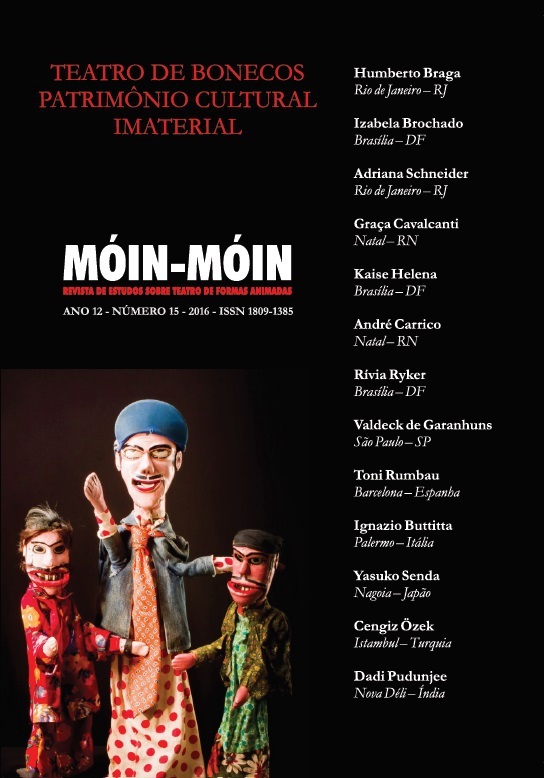Polichinela, arquetipo y mito
DOI:
https://doi.org/10.5965/2595034701152016128Abstract
El estudio presenta una especie de diáspora de importantes personajes del teatro de títeres en Europa. El Polichinela italiano es el punto de partida. París tuvo a Polichinelle, Londres a Punch, las ciudades alemanas a Kasperl o Kaspar, Moscú y San Petesburgo a Petrushka, Copenhague a Mester Jakel, Ámsterdam a Jan Klaassen, Budapest a Vitez Lazlo, Bucarest a Vasilache, Praga a Kasparec, Lyon a Guignol, Turín
a Gianduja, Bérgamo a Gioppino, Barcelona a Titella, Madrid a Don Cristóbal Polichinela, ciudades portuguesas como Oporto y Lisboa a Don Roberto, por sólo citar a los más conocidos. El artículo analiza el nacimiento y la vida de estos personajes en el contexto de los periodos renacentista y barroco y posteriormente de la Revolución Francesa y las Guerras Napoleónicas. Cierra con una mirada sobre estos personajes
en el siglo XXI.
Palabras-cave: Teatro de Títeres. Polchinela. Mito. Arquetipos.
Downloads
Downloads
Published
How to Cite
Issue
Section
License
The readers are free to transfer, print and use the articles published in the Magazine, as long as there’s explicit mention to the author(s) and to Móin-Móin Magazine - Studies in Theater of Animated Forms and there are no changes on the original work. Any other use of the texts needs to be approved by the author(s) and the Magazine. In submitting an article to Móin-Móin Magazine - Studies in Theater of Animated Forms and have it approved, the author(s) agree to give away, without payments, the following rights to the Magazine: first publishing rights and the license for the Magazine to redistribute this article and its metadata to index and reference services that the editors consider appropriate.
The articles whose author(s) are identified represent the author’s point of view and not the official position of Móin-Móin Magazine. The author(s) commit to always mention the publication in the following way when publishing work in reference to the article published in Móin-Móin Magazine:
“This article was originally published by Móin-Móin Magazine volume (insert the volume), number (insert the number), in the year of (insert year) and can be accessed on: http://www.revistas.udesc.br/index.php/móin"
Plagiarism in any way constitutes an unethical publishing behavior and is unacceptable. Móin-Móin Magazine holds the right to use software or other plagiarism tracking methods to scan the submitted works.
![]()
This journal uses Attribution-NonCommercial 4.0 International– (CC BY NC 4.0).






